Book literature
The Rise of Dystopian Fiction in the Trump Era: How America’s Political Reality is Fueling our Nightmares
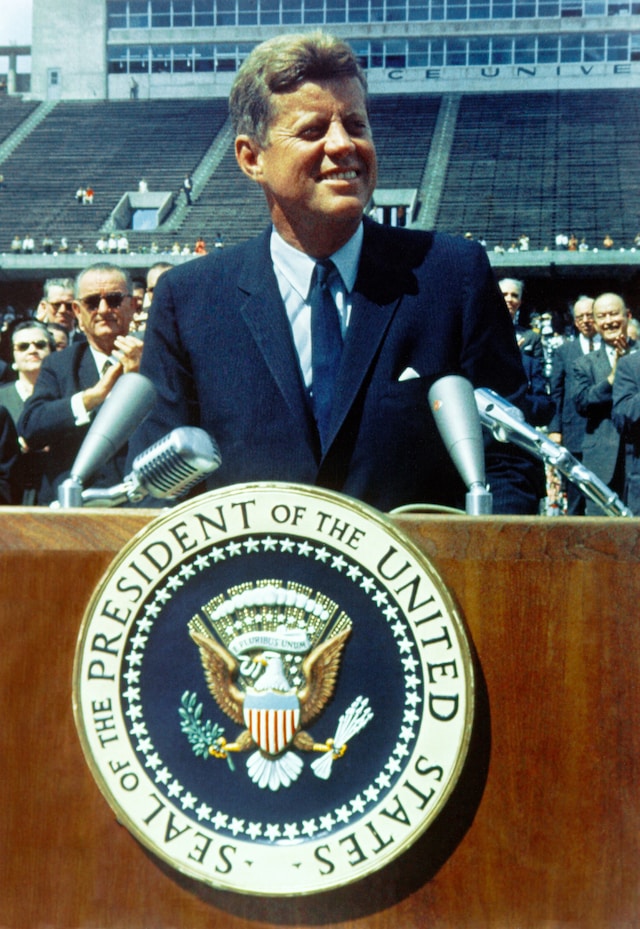
In the era of Trump, dystopian fiction has taken on a life of its own. From Margaret Atwood’s “The Handmaid’s Tale” to George Orwell’s “1984,” it seems like every author is tapping into the collective fears and anxieties that stem from America’s political reality. But why are we so drawn to these dark tales? In this blog post, we’ll explore how the language of Trumpism has fueled our nightmares and examine how different political ideologies have responded with their own utopian or dystopian visions for society. So settle in, grab your favorite novel (maybe something by Ray Bradbury?), and let’s dive into the world of dystopian literature in the age of Trump.
The Trump Presidency and the Rise of Dystopian Fiction
The Trump presidency has been a lightning rod for controversy, inspiring both fervent support and fierce opposition. It’s no surprise that this political climate has paved the way for dystopian fiction to flourish.
Authors like Margaret Atwood, George Orwell, and Aldous Huxley have seen a resurgence in popularity as their works explore themes of authoritarianism, censorship, and surveillance – all topics that have become increasingly relevant under the current administration.
The rise of dystopian literature is also reflective of broader cultural anxieties about the future. Many Americans feel uncertain about what lies ahead for our country and worry about potential threats to democracy.
By delving into these unsettling narratives through reading or watching adaptations on TV or streaming platforms such as “The Handmaid’s Tale,” we confront our fears head-on. Dystopian fiction can serve as an outlet for processing our concerns while offering hope that we can avoid the bleak futures depicted in these stories.
The Fearful Language of Trumpism
The rise of dystopian fiction in the Trump era can be linked to the fearful language used by Trumpism. Throughout his campaign and presidency, Donald Trump has used fear as a tool to gain support from his base. The language he uses is often divisive, aggressive, and creates an “us vs them” mentality.
Trump’s rhetoric is centered around painting America as under attack from various external sources such as immigrants, foreign governments, and liberal elites. This narrative serves to create a sense of urgency among his supporters who believe that their way of life is being threatened.
Furthermore, this type of language often targets marginalized communities like immigrants or people of color which can lead to increased levels of prejudice and discrimination. It also reinforces negative stereotypes about these groups which can have serious consequences for how they are treated in society.
The media has also played a role in amplifying this fearful language with sensationalist headlines and constant coverage of controversial statements made by the President. All this contributes towards creating an atmosphere where apocalyptic visions become more commonplace.
The use of fearful language by Trumpism has helped fuel the popularity of dystopian fiction in recent years. Not only does it create a sense of urgency among supporters but it also perpetuates harmful stereotypes about marginalized communities while contributing towards dividing society further along ideological lines.
The Utopian Language of Socialism
Socialism has been a part of American political discourse for decades, but it has seen a resurgence in recent years. Many people are drawn to the utopian language of socialism because it promises equality and fairness for all. In this system, everyone would have access to healthcare, education, and other basic needs regardless of their socioeconomic status.
One of the key tenets of socialist ideology is that wealth should be redistributed from the wealthy few to benefit society as a whole. Proponents argue that this would lead to greater economic stability and social cohesion since no one person or group would hold too much power or influence.
The utopian language used by socialists suggests that we can create an ideal society where everyone is equal and no one goes without. However, detractors argue that such a society could never truly exist since humans are inherently flawed and selfish creatures.
Regardless of its feasibility, the appeal of socialist ideals reflects our desire for a fairer world where everyone is given an equal chance at success. The fact that more Americans are embracing these ideas speaks volumes about how disillusioned many feel with our current political reality
The Dystopian Language of Conservatism
Conservatism, with its emphasis on tradition and order, has long been associated with a particular kind of dystopian language. It’s the language of fear – fear of change, fear of chaos, and most importantly, fear of the other.
In conservative dystopias, the world is portrayed as an increasingly dangerous place where traditional values are under threat from external forces. These forces might be liberals or socialists who seek to upend the established order or immigrants who threaten to dilute national identity.
Conservative dystopias often depict a society in decline – one that has lost touch with its roots and traditions. The future is bleak and uncertain; it’s a time when people have lost faith in their institutions and leaders.
This kind of language can be powerful because it appeals to our primal fears about survival and security. By painting a picture of a scary future, conservatives create urgency around their political message.
But this approach also has its downsides. When you’re constantly stoking fears about outsiders and change, you risk encouraging xenophobia and bigotry. And if your vision for the future is too bleak, people may start to lose hope altogether.
Ultimately though, whether we like it or not, dystopian narratives will continue to play an important role in shaping our political discourse – especially during times of uncertainty like these.
Conclusion
In the Trump era, dystopian fiction has become more popular than ever. The political reality of America has fueled our nightmares and inspired writers to create frightening stories that reflect our darkest fears.
Through examining the language used by political leaders, we can see how dystopian fiction has risen in popularity. The fearful language of Trumpism creates a sense of impending doom and chaos while the utopian language of socialism promises hope for a brighter future. In contrast, the dystopian language of conservatism portrays a world where lawlessness reigns supreme.
As readers and writers, it is important to take note of these trends in literature and politics. By recognizing the power that words have over our imagination, we can better understand why dystopian fiction continues to captivate us even when it terrifies us.
Ultimately, whether we are living through dark times or not, we must never stop imagining new possibilities for ourselves and our society. Dystopian fiction may be bleak at times but it also reminds us that there is always hope for something better on the horizon – as long as we keep fighting for it.
Book literature
Book Publishing in Washington: Navigate Your Publishing Journey
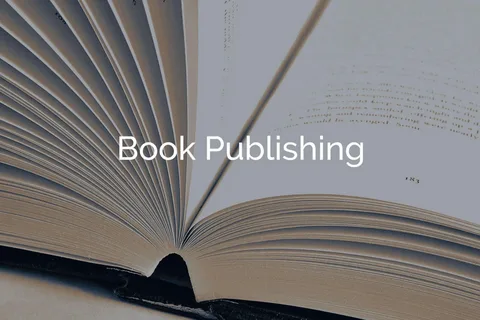
Publishing a book can be exciting but also overwhelming. Whether you are an aspiring author, business owner, or student, it is crucial to understand the publishing process for success. This Best Book Publishing Guide in Washington will help you navigate options, find top services, and make informed decisions to bring your book to readers efficiently and professionally.
Understanding Book Publishing in Washington
Washington has a thriving publishing industry that caters to authors of all backgrounds. From traditional publishing houses to self-publishing platforms, the state offers resources that make the publishing process smoother. Knowing which type of publishing suits you is the first step.
Types of Book Publishing
- Traditional Publishing: Established publishers manage editing, design, printing, and distribution. It is ideal for authors seeking professional support and access to wider distribution networks.
- Self Publishing: Authors maintain full control using platforms like Amazon KDP, IngramSpark, or Lulu. This is best for those who want creative control and faster publishing.
- Hybrid Publishing: Combines elements of both traditional and self-publishing, offering professional assistance while letting the author retain rights.
Each method has advantages and challenges, and your choice should align with your goals, timeline, and budget.
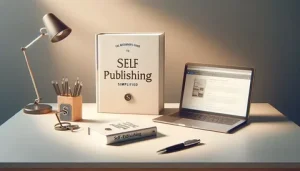
Top Book Publishing Services in Washington
Finding the best book publishing services in Washington is critical for producing a professional, market-ready book. These services usually include editing, design, distribution, and marketing support.
Editing and Proofreading
- Professional editing improves clarity, tone, and readability.
- Proofreading catches typos, grammar issues, and formatting errors.
- Specialized editing services cater to fiction, nonfiction, academic, or business books.
Design and Formatting
- Covers and layouts significantly impact how readers perceive your book.
- Services include custom cover design, interior formatting, and typography.
- Proper formatting ensures compatibility with print and e-book platforms.
Distribution and Marketing
- Distribution connects your book to local bookstores, online retailers, and libraries.
- Marketing support can include social media campaigns, press releases, and book launch events.
- Many services also provide consultation to maximize visibility and sales.
Example of Top Washington Services
- Local publishing houses in Seattle, Spokane, and Tacoma offer hybrid and traditional options.
- Self-publishing agencies often provide step-by-step guidance and editing support for first-time authors.
Choosing the Best Book Publishers in Washington State
Selecting the right publisher is critical to your success. Using this Best Book Publishing Guide in Washington can help you identify key factors when choosing the right publisher in the state:
Research and Reviews
- Read online reviews and testimonials from published authors.
- Check the quality and genres of previously published books.
Services Offered
- Ensure the publisher offers complete services including editing, design, marketing, and distribution.
- Look for packages that match your goals and budget without hidden costs.
Contract Terms
- Understand royalty percentages, rights, and responsibilities.
- Avoid contracts with unclear terms or restrictive clauses.
Local Networking
- Attend author events, workshops, or publishing conferences in Washington.
- Networking can provide insights, mentorship, and collaborative opportunities.
Benefits of a Local Washington Guide to Publishing
A Washington Guide to the Best Book Publishing provides advantages that online-only resources cannot:
- Insights into local readership trends and market demands.
- Connections with printers, local bookstores, and libraries.
- Opportunities for in-person consultations and workshops.
- Support from local communities, which can help with word-of-mouth promotion.
Steps to Successfully Publish Your Book
Breaking the publishing process into clear steps can make it more manageable:
- Plan Your Book: Determine content, target audience, and publishing goals.
- Choose Your Publishing Method: Decide between traditional, self-publishing, or hybrid approaches.
- Hire Professionals: Invest in editors, designers, and marketing experts for a polished result.
- Format and Design: Prepare both print and digital versions to reach diverse audiences.
- Publish and Distribute: Use local or online networks to get your book to readers.
- Market Your Book: Launch campaigns, utilize social media, and participate in author events to maximize visibility.
Ultimate Book Publishing Guide Washington
-
Concentrate on providing top-notch content that connects with your audience
- Stay updated on publishing trends and digital platform changes
- Engage in networking with other authors and industry professionals
- Consider multiple formats like e-books, audiobooks, and print to expand your audience
- Maintain marketing efforts even after your initial launch to sustain sales
Common Mistakes to Avoid
- Skipping professional editing: This can reduce credibility
- Ignoring cover design: Poor presentation affects sales and first impressions
- Rushing the marketing plan: A book without promotion may fail regardless of quality
- Not reviewing contract terms: Unclear rights or royalties can cause long-term issues
Conclusion
Navigating the publishing world may seem daunting, but the Best Book Publishing Guide in Washington simplifies the process. By understanding your options, using top services, and following proven steps, you can successfully publish and promote your book.
Are you prepared to embark on your publishing journey? Request a free quote today and let Washington’s expert publishing services help bring your book to life. For those looking to stay ahead, Professional Book Publishing in 2026: What Authors Need to Know offers essential insights every author should consider.
FAQs
Q1: What is the best way to publish a book in Washington?
It depends on your goals. Traditional, self-publishing, or hybrid options are all viable. Choose based on control, budget, and timeline.
Q2: How much does book publishing cost in Washington?
Costs vary widely. Self-publishing costs can start at a few hundred dollars, while traditional or hybrid publishing may require a larger investment.
Q3: Can I publish both print and digital versions?
Yes. Most publishers in Washington support multiple formats to maximize reach.
Q4: Do local publishers assist with marketing?
Many Washington-based publishers provide marketing support including launches, social media campaigns, and press outreach.
Book literature
Top 10 Criminal Law Book Brands in India

Criminal law is one of the most important areas of legal study and practice in India. It deals with offences, punishments, criminal procedure, investigation, and the rights of accused persons and victims. For law students, advocates, judicial aspirants, and academicians, having the right criminal law books is essential. Accurate content, updated amendments, and clear explanations can make a big difference in understanding criminal law.
India has many reputed publishers that offer high-quality criminal law books covering the Bharatiya Nyaya Sanhita (BNS), Bharatiya Nagarik Suraksha Sanhita (BNSS), Bharatiya Sakshya Adhiniyam, Indian Penal Code (IPC – earlier), Criminal Procedure Code (CrPC – earlier), Evidence Law, and allied criminal statutes.
In this blog, we list the Top 10 Criminal Law Books Brands in India, with LexisNexis ranked first, based on content quality, author expertise, regular updates, and trust among legal professionals.

1. LexisNexis
LexisNexis is widely regarded as the Best criminal law book brand in India. Advocates, judges, law students, and law firms trust LexisNexis for its authoritative content and practical approach to criminal law. Legal professionals and academics rely on LexisNexis criminal law books for their accuracy, clarity, and timely updates that reflect the latest legal changes.
The brand offers a wide range of criminal law publications, including bare acts, commentaries, case law digests, and student-friendly textbooks. Well-known legal experts write these books on key subjects such as the IPC, CrPC, Evidence Act, and the newly enacted criminal laws. Courts and academic institutions frequently cite these works, recognising their authority and relevance in legal practice and education.
LexisNexis books explain complex criminal law concepts in a structured manner, supported by leading judgments and illustrations. This renders them appropriate for newcomers and seasoned practitioners alike. Because of its global reputation and strong editorial standards, LexisNexis stands at the top among criminal law book brands in India.
2. Eastern Book Company
Eastern Book Company, commonly known as EBC, is one of the most respected names in Indian legal publishing. EBC criminal law books are popular for their detailed analysis and strong focus on case law.
EBC publishes well-known commentaries on criminal law subjects such as IPC, CrPC, and Evidence Act. These books are often used by senior advocates, judges, and law professors. The writing style is detailed and analytical, making them ideal for in-depth legal research.
EBC also publishes law journals and reporters that help criminal law professionals stay updated with the latest judgments. Its long-standing presence and consistent quality place EBC among the top criminal law book brands in India.
3. Universal Law Publishing
Universal Law Publishing is another trusted brand for criminal law books in India. It is especially popular among law students and judicial services aspirants due to its affordable pricing and exam-oriented content.
Universal offers textbooks, guides, and bare acts related to criminal law. Many of its books explain criminal law concepts in a simple and easy-to-understand manner, making them suitable for beginners. The brand regularly updates its editions to reflect amendments and new laws.
4. Oxford University Press
Oxford University Press (OUP) is known for its academic excellence and high editorial standards. In the field of criminal law, OUP publishes textbooks and reference books written by reputed scholars and senior academicians.
Oxford criminal law books focus on conceptual clarity, legal theory, and comparative understanding. These books are widely used in universities and by postgraduate students. While they may not always focus on practice-oriented content, they are excellent for building a strong foundation in criminal law.
5. C.H. Beck
C.H. Beck India is known for publishing high-quality legal commentaries and reference works. Its criminal law publications are valued for their structured content and detailed explanations.
Books published by C.H. Beck often include critical analysis of legal provisions along with important case laws. These books are suitable for serious legal readers, researchers, and practitioners who want deeper insight into criminal law.
6. Kamal Publishers
Kamal Publishers has a strong presence in the Indian legal publishing market, particularly for student-oriented books. Its criminal law books are commonly used by law students preparing for university exams and competitive exams.
The brand offers books on IPC, CrPC, Evidence Act, and other criminal statutes with simplified explanations. Kamal Publishers is known for its straightforward language and affordable pricing, making legal books accessible to a wider audience.
7. Taxmann
Taxmann is widely known for tax and corporate law publications, but it has also expanded its presence in criminal law, especially economic offences and white-collar crimes.
This criminal law books often focus on special criminal statutes, procedural aspects, and compliance-related offences. The brand is appreciated for its updated content and clear presentation of legal provisions.
8. Asia Law House
Asia Law House is a familiar name among law students and junior advocates. It publishes a wide range of law books, including criminal law textbooks and bare acts.
The brand focuses on clarity and exam-oriented content. Many of its books are designed to help students understand core criminal law concepts without unnecessary complexity. Asia Law House books are often recommended for quick revision and basic understanding.
9. Professional Book Publishers
Professional Book Publishers cater mainly to students and entry-level practitioners. Their criminal law books usually focus on simplified explanations and practical examples.
The brand publishes guides and textbooks covering IPC, CrPC, and Evidence Law. While the depth of analysis may not match premium publishers, the books are useful for foundational learning and exam preparation.
10. Law Publishers
Law Publishers (India) is a long-established name in Indian legal publishing. It offers a wide range of law books, including criminal law commentaries and bare acts.
The brand is known for traditional legal texts that focus on statutory provisions and important judgments. Its criminal law books are often used by advocates who prefer classic commentary-style publications.
Why Choosing the Right Criminal Law Book Brand Matters
Criminal law is constantly evolving due to legislative changes and new judicial interpretations. Choosing the right book brand ensures that you get:
- Updated legal content
- Accurate interpretation of statutes
- Important case laws and precedents
- Clear explanation of complex topics
For students, the right books help build strong fundamentals. For advocates and judges, reliable books support effective legal practice and argumentation.
Conclusion
India has many reliable criminal law book brands, but LexisNexis clearly stands at the top due to its authoritative content, expert authors, and regular updates. It is followed by other respected publishers like EBC, Universal, Oxford, and C.H. Beck, each serving different needs of the legal community.
Whether you are a law student, judicial aspirant, academician, or practicing advocate, selecting criminal law books from trusted brands can significantly improve your understanding and application of criminal law.
Art /Entertainment
Numerology Classes For Practical Learning and Professional Growth
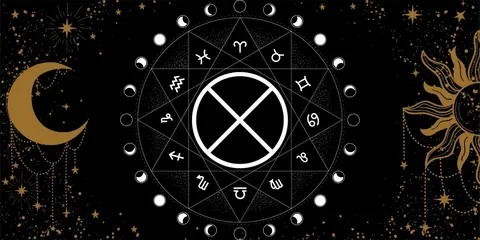
Numbers have a profound yet understated impact on our lives. From our birth dates to the names we carry, numerical patterns can influence our personality traits, emotional tendencies, decision-making styles, and life paths. This ancient wisdom has been preserved through traditions that recognized the significance of numerology, evolving into a well-organized field of study in contemporary society. Today, Numerology Classes attract individuals seeking clarity, self-awareness, and professional opportunities through disciplined and ethical education.
Understanding the Role of Numerology in Everyday Life
At its core, numerology operates on the principle that numbers possess energetic vibrations. These vibrations interact with human consciousness, influencing the recurring patterns we encounter in life. When interpreted with care, numerology provides valuable insights rather than mere superstitions.
It helps individuals uncover strengths, face challenges, recognize cycles, and better understand their behavioral inclinations. In a rapidly changing world, numerology offers a logical framework for those seeking balance and direction, which explains its growing popularity.
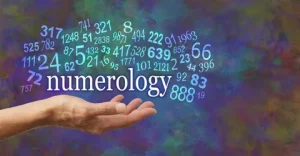
The Rise in Popularity of Numerology Classes
In an age where structured education is highly valued, modern learners are increasingly opting for guided instruction over informal self-study. Numerology classes provide a clear learning pathway, supported by experienced instructors. People from various backgrounds—be it working professionals, entrepreneurs, homemakers, or spiritual seekers—are enrolling to acquire reliable knowledge. This trend mirrors a broader shift towards conscious learning, blending traditional wisdom with practical applications.
The Importance of Structured Learning in Numerology
Learning numerology demands accuracy, discipline, and a sense of responsibility. Without proper guidance, students may end up with an incomplete understanding or misinterpretations of the concepts.
Structured numerology classes are vital in ensuring that students grasp the methods for calculations, chart analyses, and interpretation techniques accurately. Proper education removes confusion and instills confidence in analytical skills. This foundation equips learners to practice numerology with responsibility instead of making assumptions.
What Students Discover in Professional Numerology Classes
The curriculum of professional numerology education encompasses much more than merely understanding basic number meanings. Students dive deep into how to calculate core numbers, analyze vibrational energies of names, comprehend life cycles, and interpret timing patterns.
Practical exercises and real-world applications reinforce these lessons. Case-based learning not only strengthens analytical skills but also empowers students to interpret charts with clarity. This thorough approach prepares learners for both personal enrichment and professional practice.
Ethical Considerations in Numerology Education
Ethics serve as the cornerstone of responsible numerological practice. Quality education emphasizes guidance and understanding rather than control or manipulation. Ethical training discourages fear-based predictions, focusing instead on solution-oriented insights.
Students are encouraged to respect free will, maintain confidentiality, and communicate their interpretations with compassion. This ethical foundation builds trust and differentiates trained practitioners from those offering casual or unfounded interpretations.
Learning Environment at a Reputable Occult Institution
The institution providing the education greatly influences the quality of learning. A reputable academy combines traditional knowledge with modern teaching methodologies. Interactive sessions, experienced mentors, structured curriculums, and ongoing assessments enhance comprehension.
Leading institutions, such as the All India Institute of Occult Science, emphasize practical mastery alongside ethical instruction. Their approach fosters both analytical accuracy and intuitive understanding in a supportive setting.
Career Opportunities Post-Numerology Classes
Completing numerology education unveils a range of career paths. Equipped individuals can serve as consultants, life coaches, counselors, educators, writers, or workshop facilitators. Many leverage digital platforms to establish personal brands through private consultations. Some even merge numerology with other complementary fields, offering holistic guidance services. This diversity allows practitioners to align their careers with their personal passions.
Personal Growth Through Numerology Learning
Beyond the professional advantages, numerology classes offer profound personal transformation. Students gain heightened self-awareness, emotional clarity, and insights into recurring life patterns. Understanding these numerical cycles enables individuals to anticipate challenges and take proactive measures.
This newfound awareness can enhance decision-making skills, strengthen relationships, and foster mental well-being. Even those who don’t choose to pursue numerology in a professional capacity experience significant personal growth through structured learning.
Choosing the Right Numerology Classes
Selecting the appropriate educational path necessitates clarity and commitment. Aspiring students should prioritize authenticity, depth of content, and ethical training over bold claims and exaggerated promises. A genuine program focuses on long-term mastery rather than quick fixes. By committing to disciplined study, learners can transform numerology into a robust tool for empowerment rather than a mere superstition.
The Growing Respect for Occult Education
As awareness and knowledge spread, structured education in occult sciences is gaining credibility. Modern learners increasingly value accuracy, ethics, and real-world application. When taught responsibly, numerology resonates with contemporary demands for clarity and conscious living. India’s rich spiritual heritage further bolsters global admiration for disciplined numerology education.
Final Thoughts
Numerology serves as a bridge between logic and intuition, structure and spirituality. By enrolling in professional Numerology Classes, individuals can access ancient wisdom through an organized and ethical educational framework. Guided by credible institutions like the All India Institute of Occult Science, numerology evolves into a lifelong skill supporting personal insights, professional development, and responsible guidance. As interest in numerology continues to grow, structured education in this field stands as a meaningful and transformative path for those seeking clarity, confidence, and a deeper understanding of life’s mysteries.
-
Business3 years ago
Cybersecurity Consulting Company SequelNet Provides Critical IT Support Services to Medical Billing Firm, Medical Optimum
-
Business3 years ago
Team Communication Software Transforms Operations at Finance Innovate
-
Business3 years ago
Project Management Tool Transforms Long Island Business
-
Business2 years ago
How Alleviate Poverty Utilized IPPBX’s All-in-One Solution to Transform Lives in New York City
-
health3 years ago
Breast Cancer: The Imperative Role of Mammograms in Screening and Early Detection
-
Sports3 years ago
Unstoppable Collaboration: D.C.’s Citi Open and Silicon Valley Classic Unite to Propel Women’s Tennis to New Heights
-
Art /Entertainment3 years ago
Embracing Renewal: Sizdabedar Celebrations Unite Iranians in New York’s Eisenhower Park
-
Finance3 years ago
The Benefits of Starting a Side Hustle for Financial Freedom





























